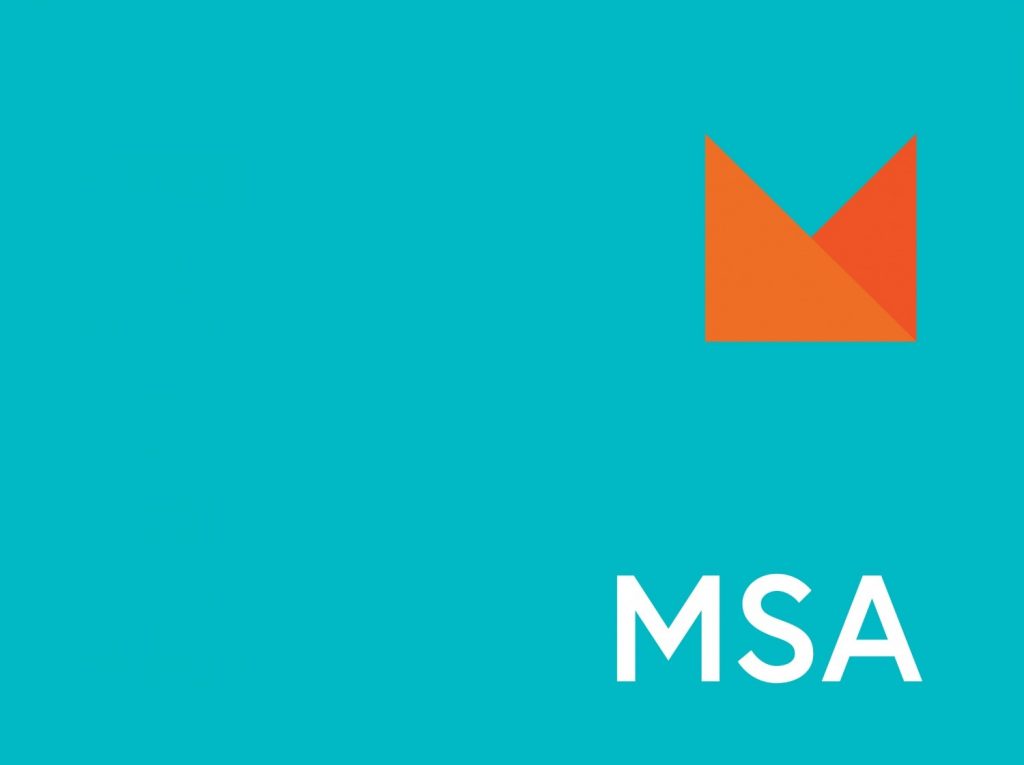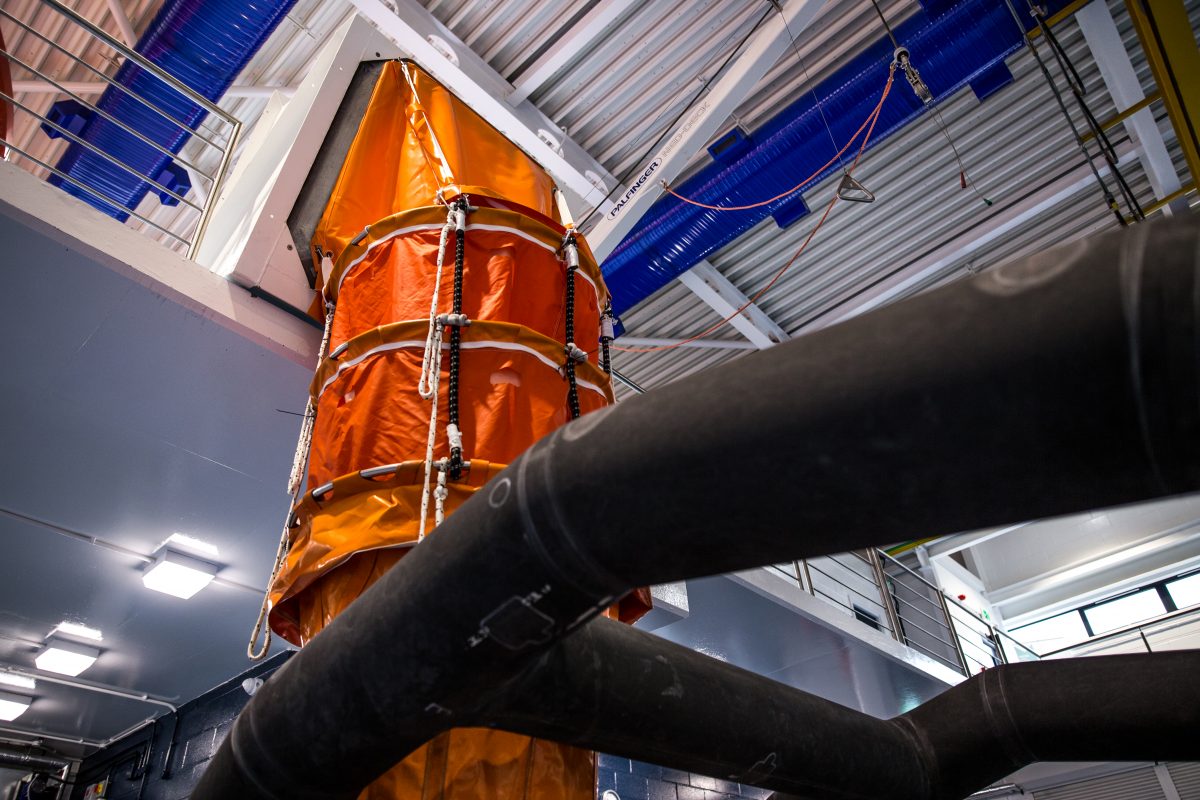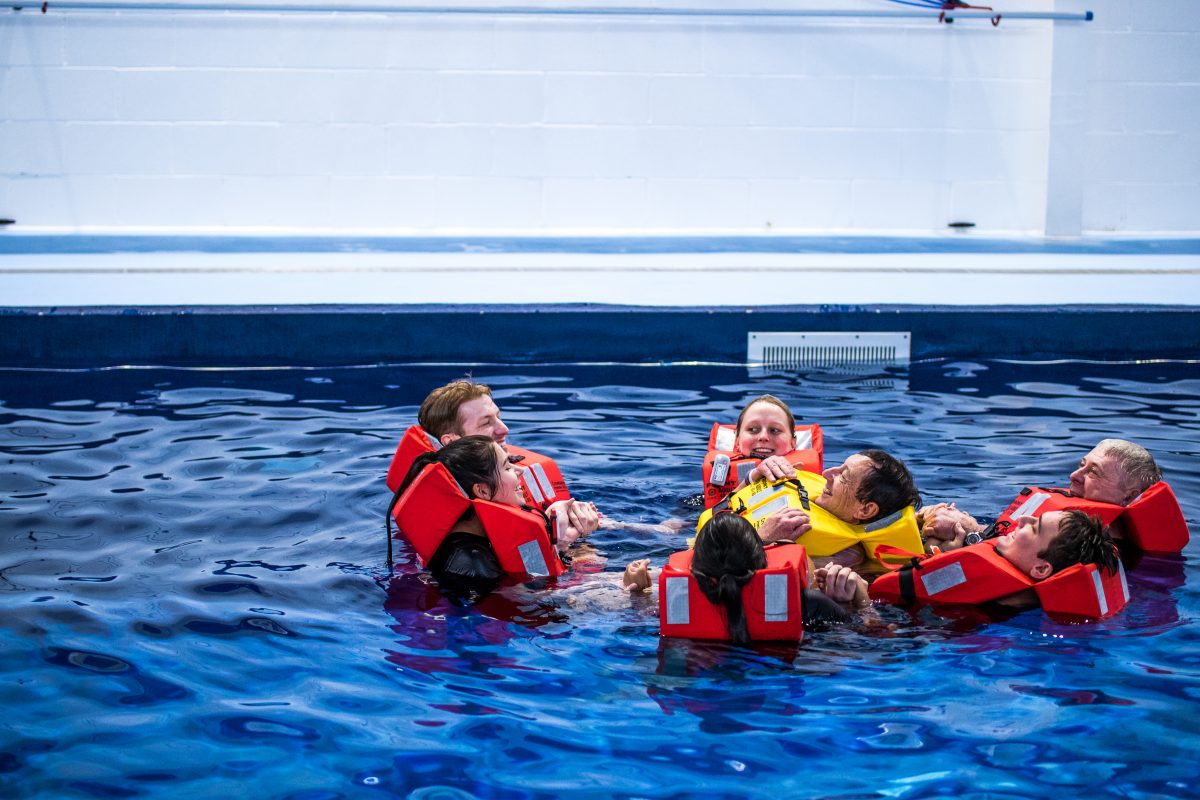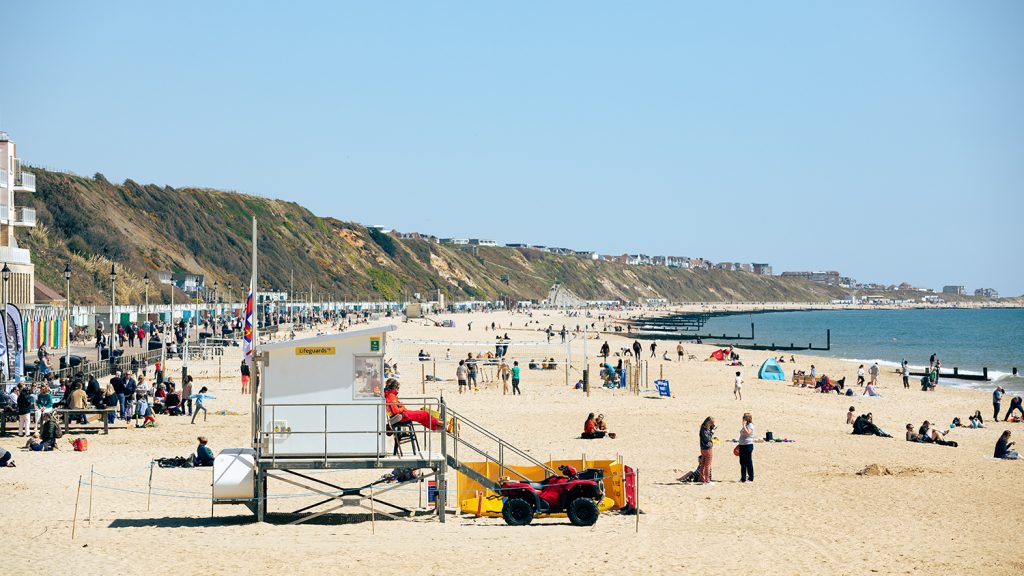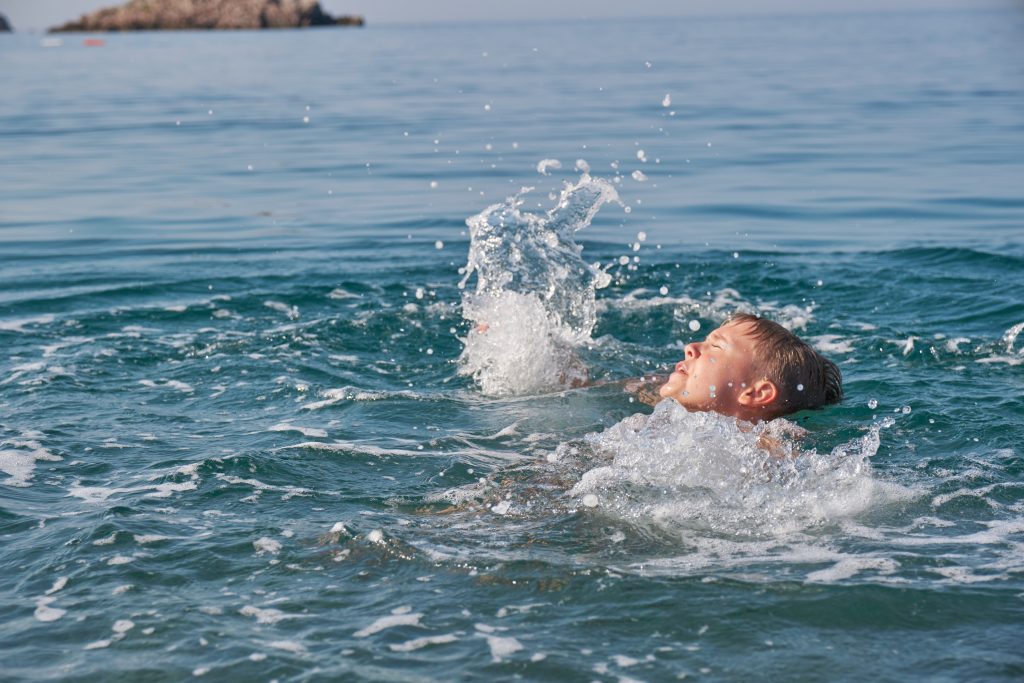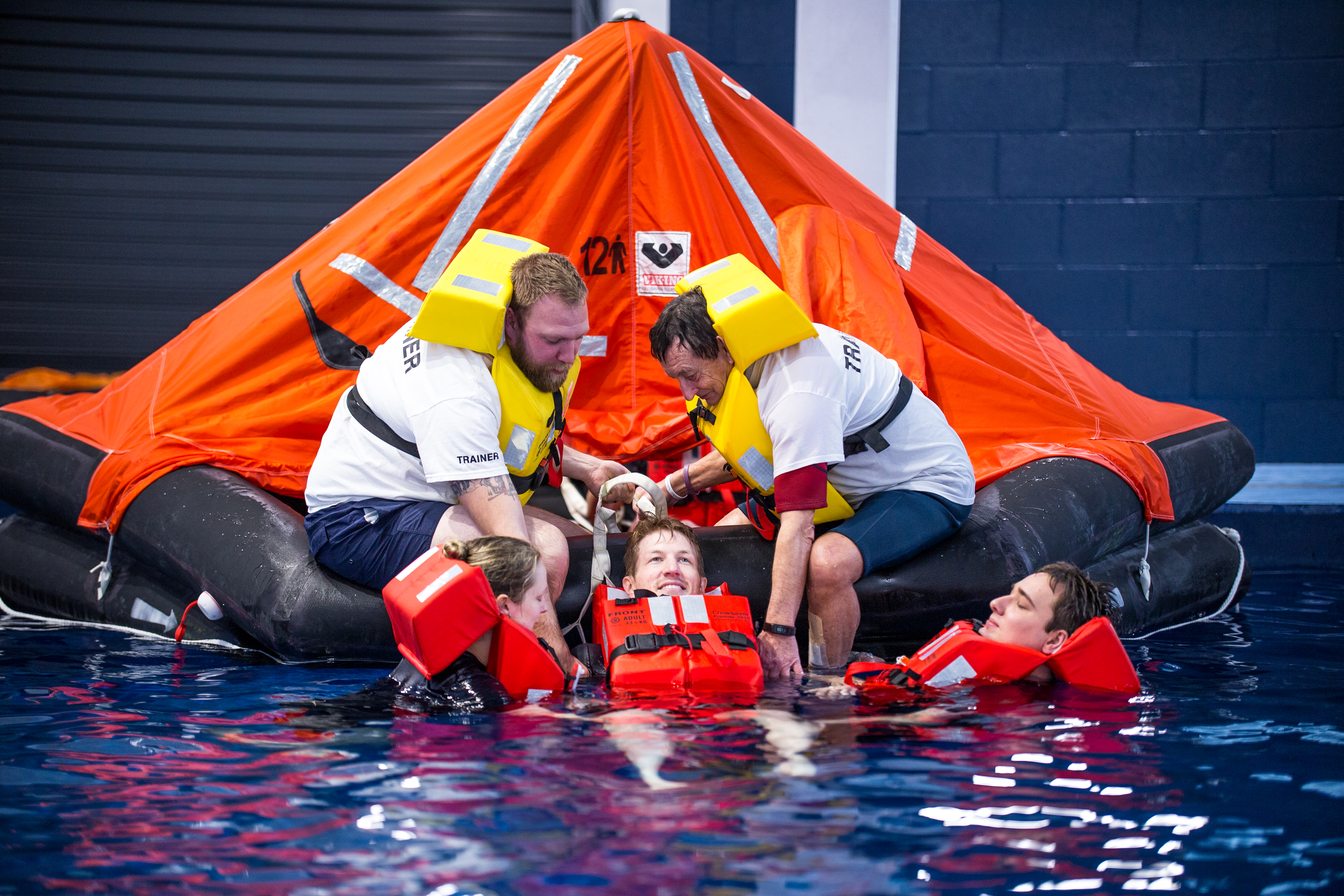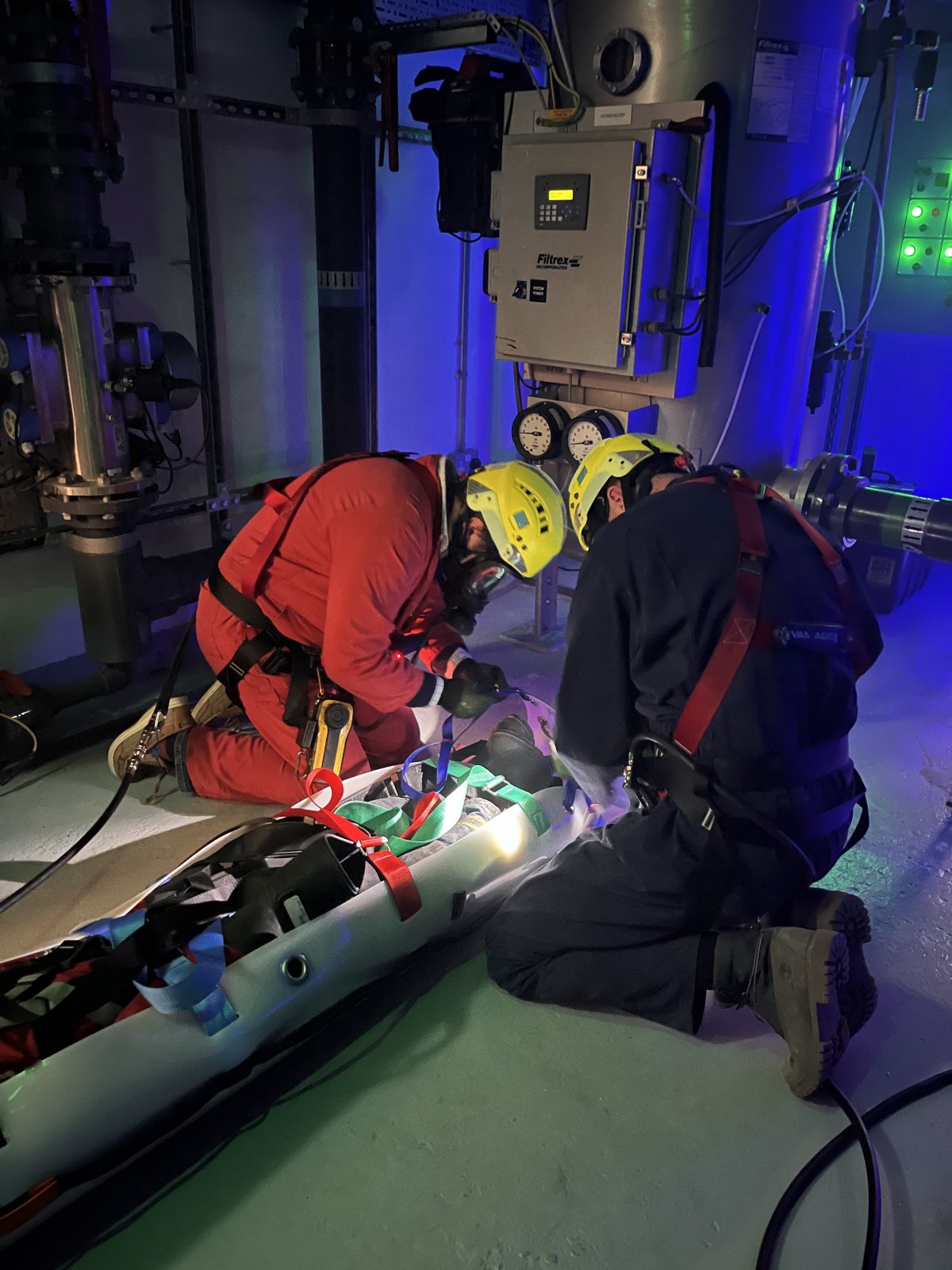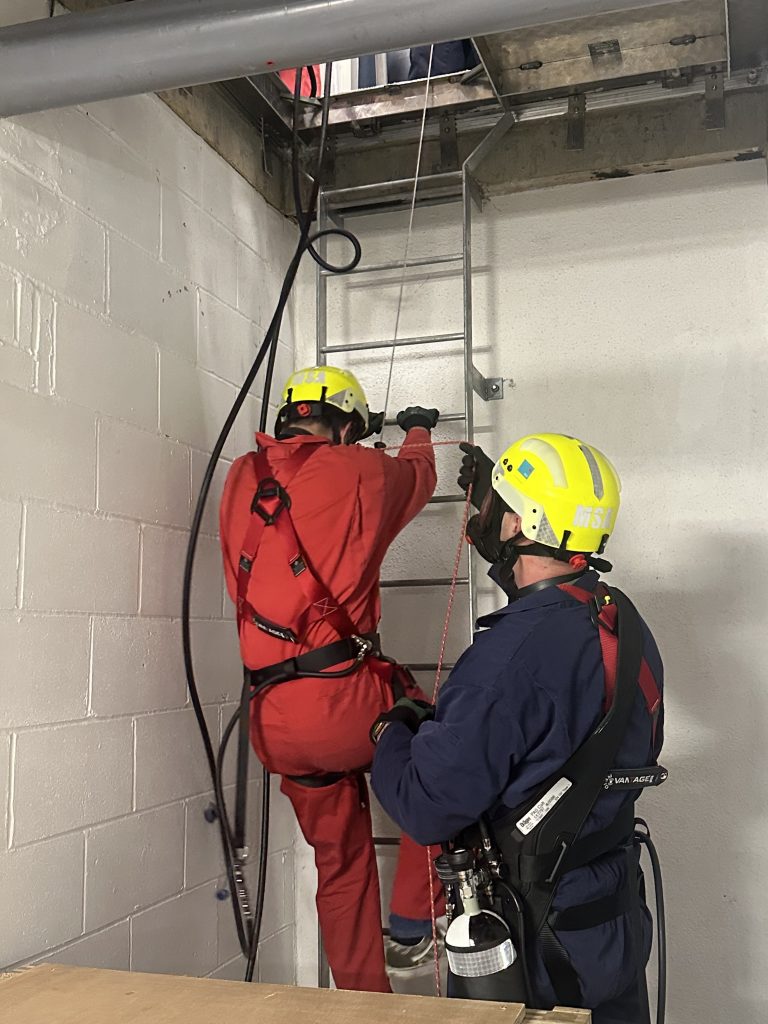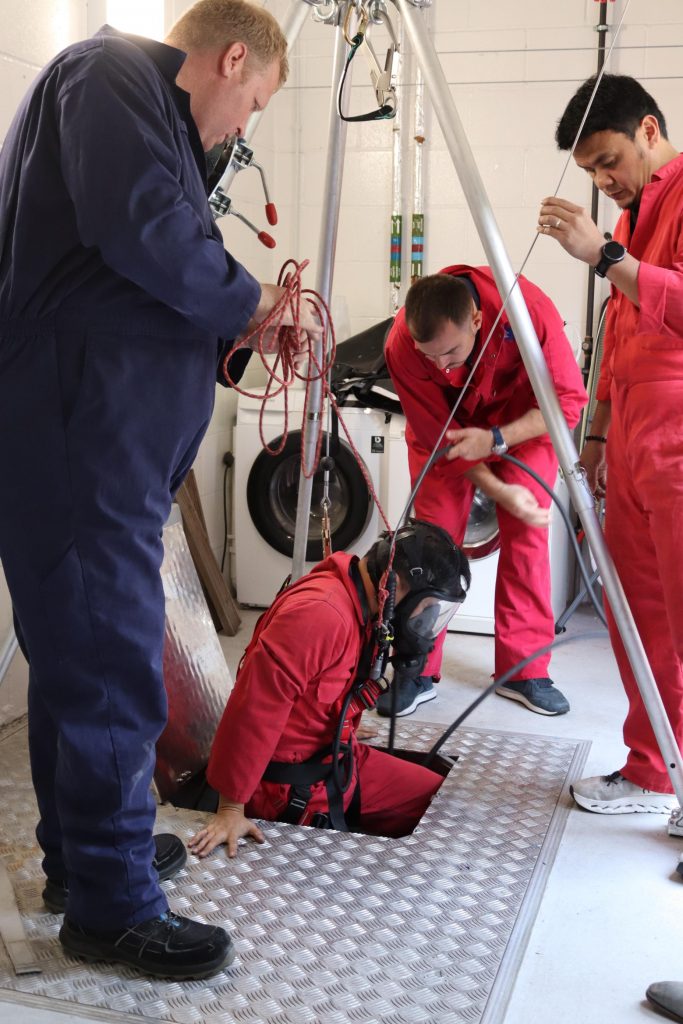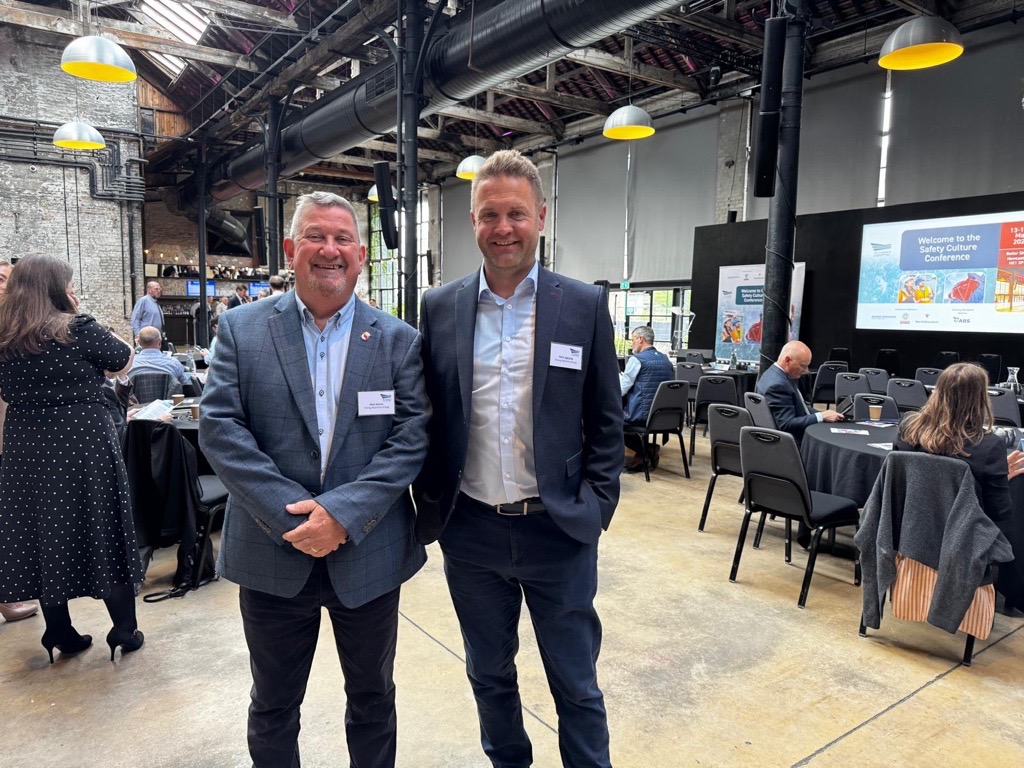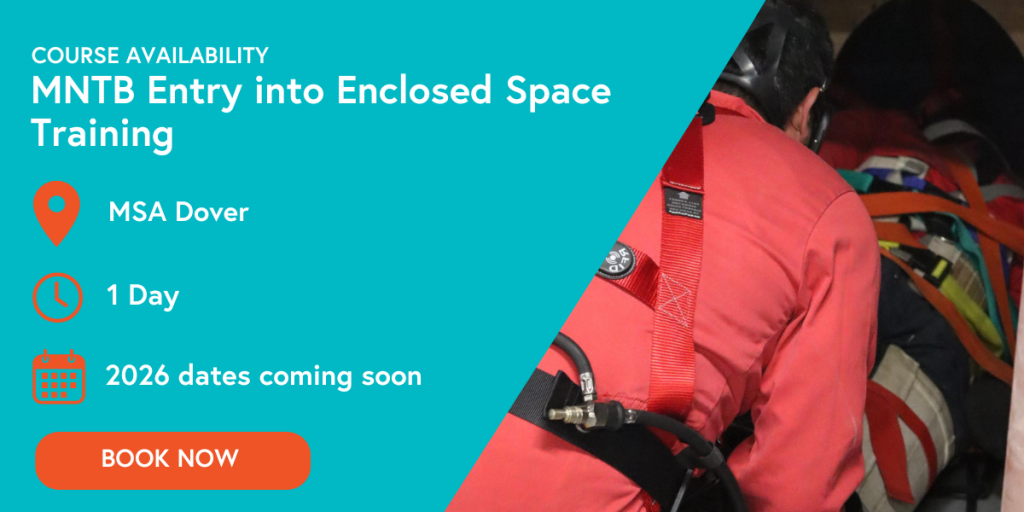In the maritime industry, evacuation and safety systems are vital in the event of an emergency. Arguably, none are as critical as the Marine Evacuation System (MES). Saving countless lives year on year, MES systems are designed to be utilised on large vessels, carrying thousands of passengers.
For this reason, it is imperative that crew should be properly trained and able to guide passengers through the various marine evacuation systems available on board.
At the Maritime Skills Academy, our hands-on training prepares crew for onboard emergencies with two industry-leading technologies, Brude and VIKING LSE.
What is a Marine Evacuation System (MES)?
Marine Evacuation Systems (MES) are inflatable evacuation systems that allow for quick and controlled descent from a ship into life rafts. The most common type of MES is the chute-based system, which connects the ship to life rafts via a vertical or inclined inflatable chute.
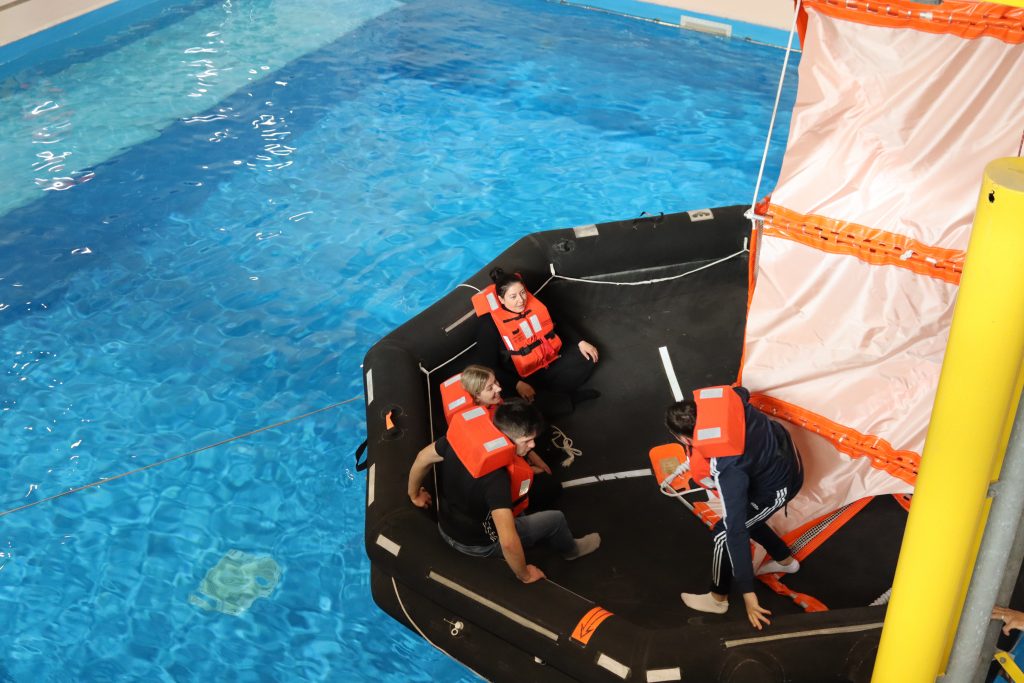
These systems are designed to deploy within minutes and accommodate large numbers of people efficiently, even in challenging sea conditions.
Why Are MES Used on Ships?
MES are used on large passenger vessels, mainly due to the majority of people onboard not being trained or prepared for emergencies. These are optimal for their general ease of use and efficiency in evacuating passengers quickly.
Fastest Marine Evacuation Solution
In the event of a fire, collision, sinking, or any situation where all on board will be required to abandon ship, an MES system is the fastest solution. With multiple MES chutes installed onboard, multiple evacuations can take place simultaneously.
Ease of use
Marine Evacuation Systems are very straightforward to use. This means that passengers can descend calmly, leaving enough time for crew to follow suit. The MES will also offer a controlled descent, allowing evacuees to determine their pace, reducing overall stress.
Independent Operation
If a vessel is in an emergency situation that has caused power outages or poses a danger if power is used, the ideal evacuation system will be independent from the ship’s electrical operations. MES systems are manually deployed by a specialised, dedicated crew, which means they can be used in almost any emergency event.
MES SOLAS regulations
To ensure international safety standards are met, every passenger vessel must harbour a Marine Evacuation System onboard, that has been inspected within the last six years. Crew are also required to be trained in the operation of the Marine Evacuation System they have on board their vessel, which will most likely be a VIKING or Brude system.
Types of Ships That Use MES
MES are typically found on passenger ferries, cruise ships, Ro-Ro vessels, highspeed crafts and offshore installations.

These vessels often carry hundreds or thousands of passengers and crew, making fast and efficient evacuation systems essential.
Benefits of MES Chutes
Speed
Marine Evacuation Systems can deploy and be ready for use in under 90 seconds which makes them the perfect solution for onboard emergency and mass evacuation.
Capacity
Some Marine Evacuation Systems can evacuate over 600 people in 30 minutes. For ferries and cruise ships, this is a significant benefit, as they transport a large number of people.
Safety
Lifeboat launches can be unpleasant, uncomfortable and in worst case scenarios, fatal. MES Chutes are a safer, easier solution that can provide a smooth evacuation for all, even without experience.
Compact storage
MES systems are small and compact. Taking up significantly less room than lifeboats or davit storage. They are also easy to deploy by comparison, making for a more pleasant environment especially onboard cruise ships, where passengers are expecting luxury.
Training at Maritime Skills Academy (MSA)
At the Maritime Skills Academy, our Marine Evacuation System training is designed to prepare crew for emergency evacuations. Teaching not only how to depart the vessel themselves, but how to encourage and explain the process to peers. Community and teamwork are essential in an onboard emergency and crew will be required to guide passengers through the evacuation scenario, should it occur.
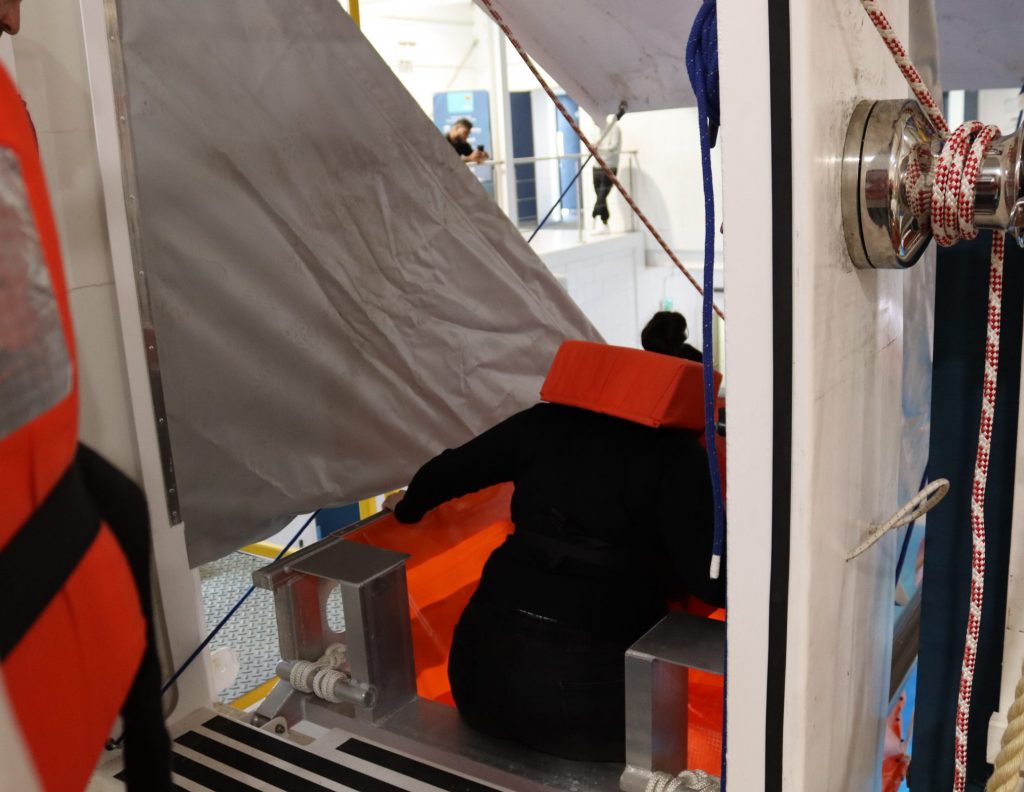
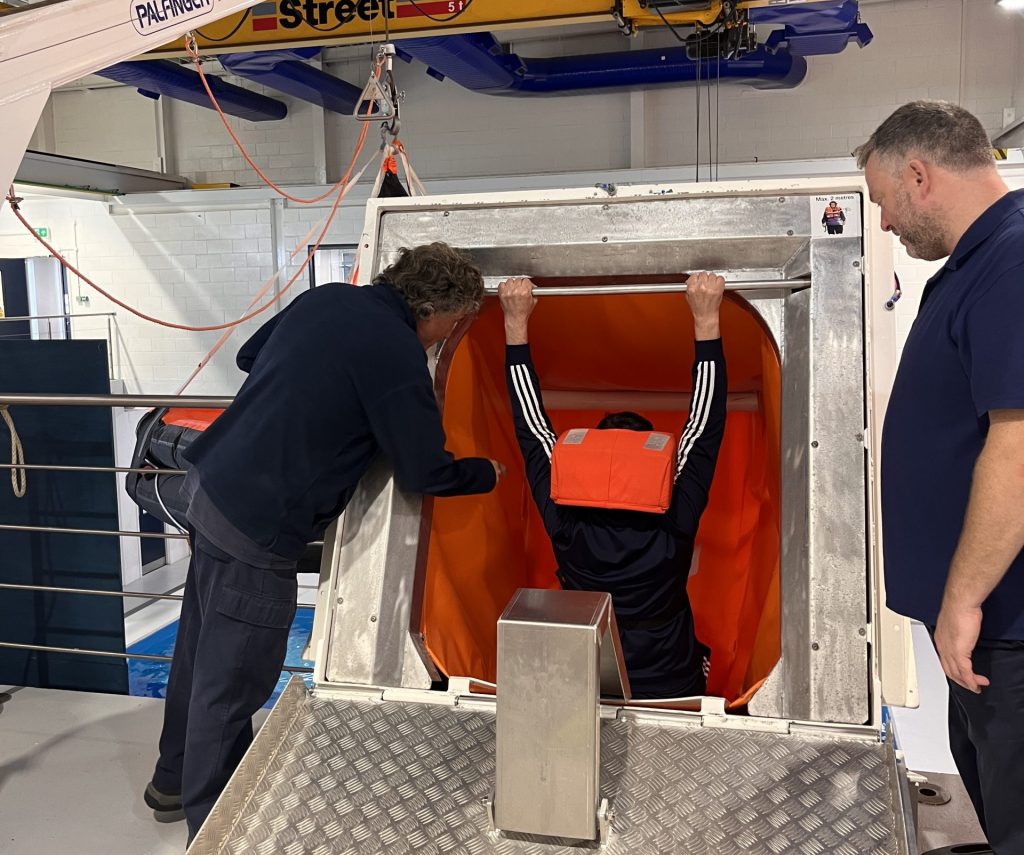
Why Choose MSA for MES Training?
At the Maritime Skills Academy, our expert instructors provide training in accredited courses for both MES systems mentioned in this piece. Simulating real-world scenarios and guiding delegates through their descent.
Contact us to find out how we can help your crew with MES training
